Kronstadt is the land of radio.
One of the most important achievement of humanity connected with Kronstadt. A Russian physicist and an engineer Alexander Popov invented radio here.
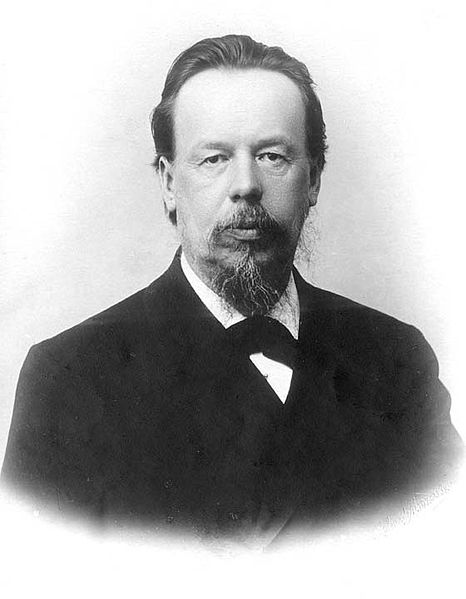 Alexander Popov
Alexander Popov
Alexander Popov (1859 –1906) had six other siblings through his father’s family. His father was a priest. They lived quite modestly. In 1873 he moved to the Perm theological seminary. After finishing his general education classes, he graduated in 1877 and successfully passed exams to enter the Faculty of Physics and Maths in St. PetersburgUniversity. Years of study at the University did not go easily for Popov. Being short of money he had to work in his free time as an electrician on a ‘Electrotechnology’ factory. During these years his scientific views took their final shape: he was particularly attracted to contemporary problems of physics and technology.
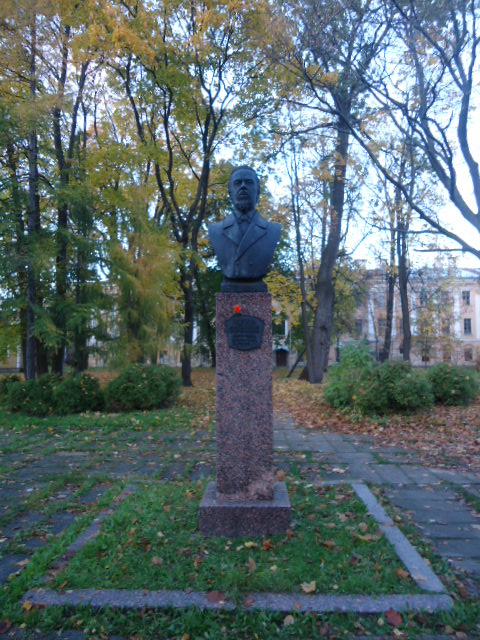
Having successfully graduated the University in 1882 he was invited to stay and prepare doctor’s thesis at Physics faculty. In 1882 Popov successfully defended his dissertation entitled ‘On the principles of direct current magneto and dynamo electric machines’. But he refused a teaching position at the University and moved to Kronstadt. That times the best school of electrical engineering and physics in Russia located here. From 1883 Alexander Popov became a professor of Physics at the High Officers mine class (the Russian Navy's Torpedo School) and the Naval technical School ( in 1890-1900).
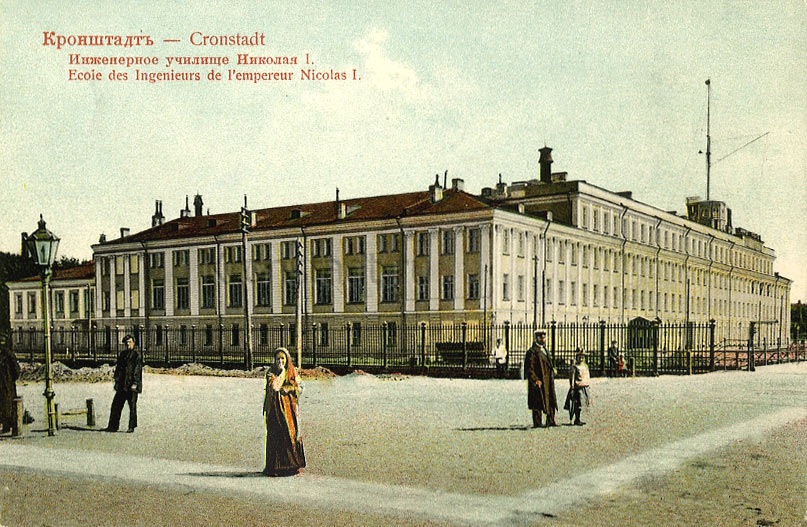 the Naval technical School in Kronstadt
the Naval technical School in Kronstadt
Well-equipped physical laboratories were in his possession, where Popov was able to carry out scientific experiments. In 1894 Popov built one of the first radio receivers, using a coherer. It was here in April 1895 (May 7 according the new calendar) Popov realized a practical radio communication between the building of the High Officers mine class and the pavilion at the park. This date - May 7, 1895 on which Alexander Popov successfully demonstrated his invention (several months earlier than Marconi) was proclaimed as the International Radio Day by the UNESCO.
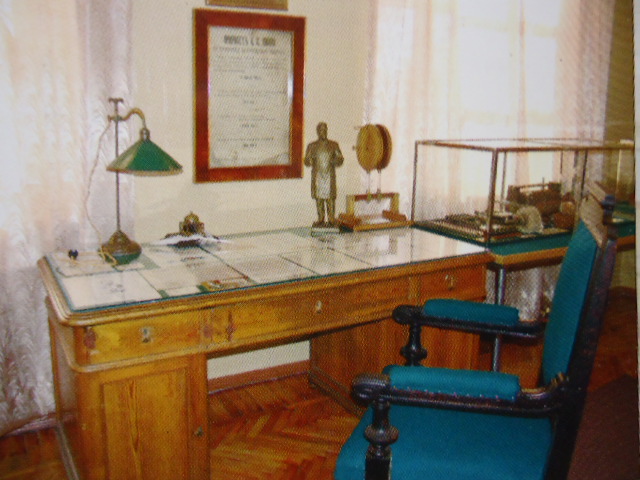
On March 24, 1896, he demonstrated transmission of radio waves between different campus buildings in St Petersburg. He was also the first to use a wire aerial.
In 1901 A.S. Popov became professor of Physics at the Imperior Alexander III Electrotechnical Institute. He was also an honorary Electrical Engineer (1899) and an honorary member of the Russian Technical Society (1901).
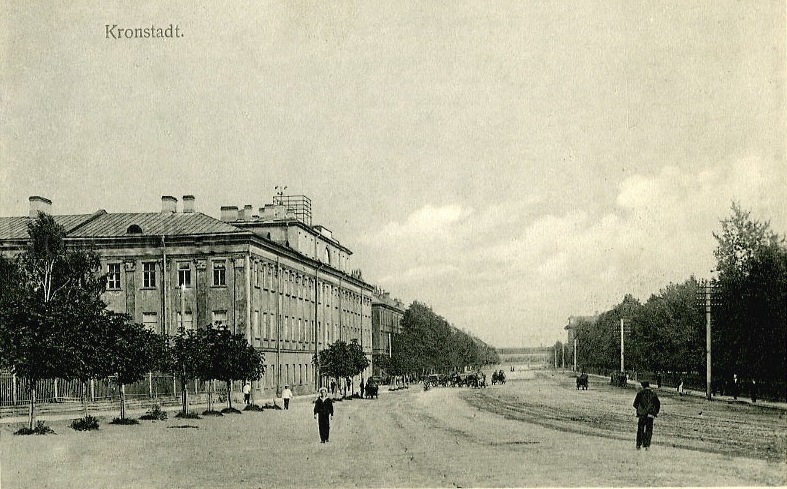 the Officer's Mine school, fragment
the Officer's Mine school, fragment
In 1900 a radio station was established under Popov's instructions on Hogland island (Suursaari) to provide two-way communication by wireless telegraphy between the Russian naval base and the crew of the battleship General-Admiral Apraksin. The battleship ran aground on Hogland island in the Gulf of Finland in November, 1899. The crew of the Apraksin were not in immediate danger, but the water in the Gulf began to freeze. Due to bad weather and bureaucratic red tape, the crew of Apraksin did not arrive until January 1900 to establish a wireless station on HoglandIsland. By February 5, however, messages were being received reliably. The wireless messages were relayed to HoglandIsland by a station some 25 miles away at Kymi (nowadays Kotka) on the Finnish coast. Kotka was selected as the location for the wireless relay station because it was the point closest to Hogland Island served by telegraph wires connected to Russian naval headquarters.
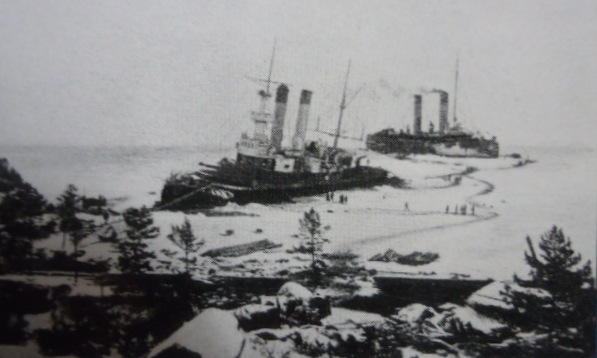
By the time the Apraksin was freed from the rocks by the icebreaker Yermak at the end of April, 440 official telegraph messages had been handled by the HoglandIsland wireless station. Besides the rescue of the Apraksin's crew, more than 50 Finnish fishermen, who were stranded on a piece of drift ice in the Gulf of Finland, were saved by the icebreaker Yermak following distress telegrams sent by wireless telegraphy. It was one of the first practical application of radio communication in the real situation.
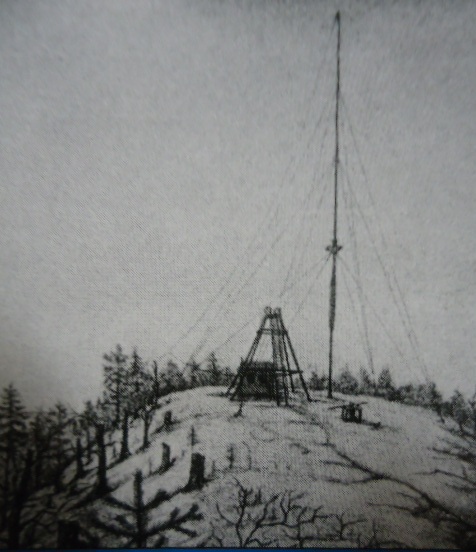
In 1901 Alexander Popov was appointed as professor at the Electrotechnical Institute, which now bears his name. In 1905 he was elected director of the institute. In 1905 he became seriously ill, after being very uneasy about the suppression of a student movement. He died of a brain hemorrhage on January 13, 1906.
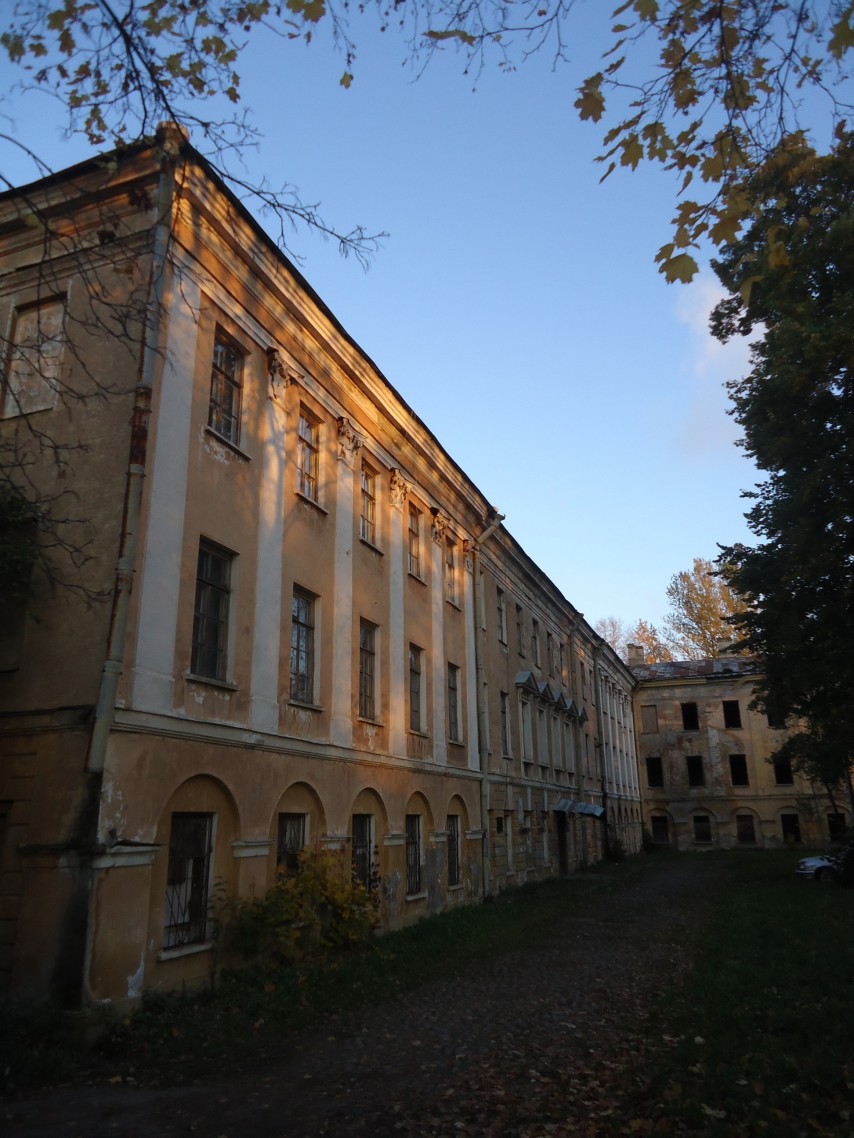
Several words about the High Officers mine class (the Russian Navy's TorpedoSchool). It was a military institution. But the complex of building was really big and included large tunnel-shaped building, a chapel at one end and gymnasium at the other. No one of this are still exist. Alexander Popov was the professor of this military institution (the Officer's Mine school) and he invented and tested radio receiver in 1895 (several months earlier than Marconi). But all Popov experiments were classified so Marconi thought that he was the first one. In fact radio was invented in Kronstadt in this building.
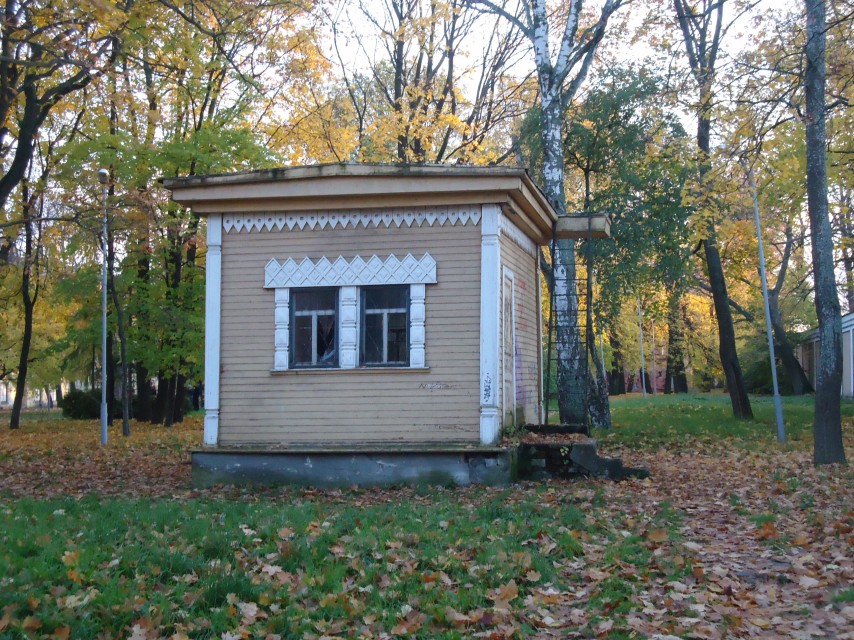
Unfortunately now this building is destruction. The Ministry of Defence does not allocate money for its restoration. But in fact, there are a lot of money in the country, but they are stolen.





